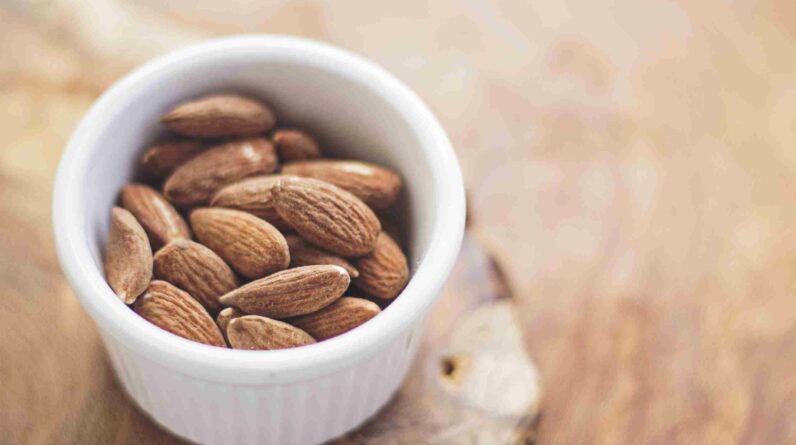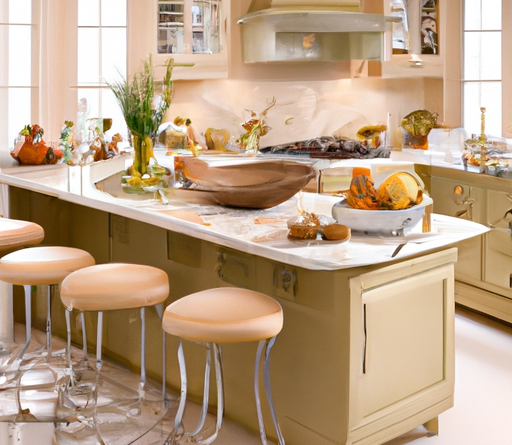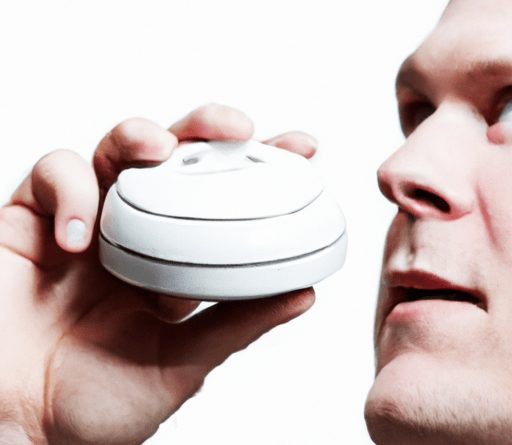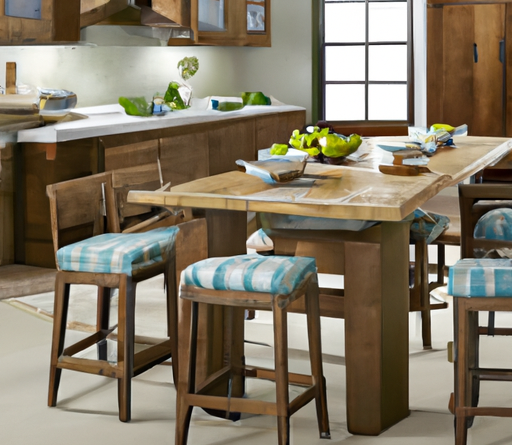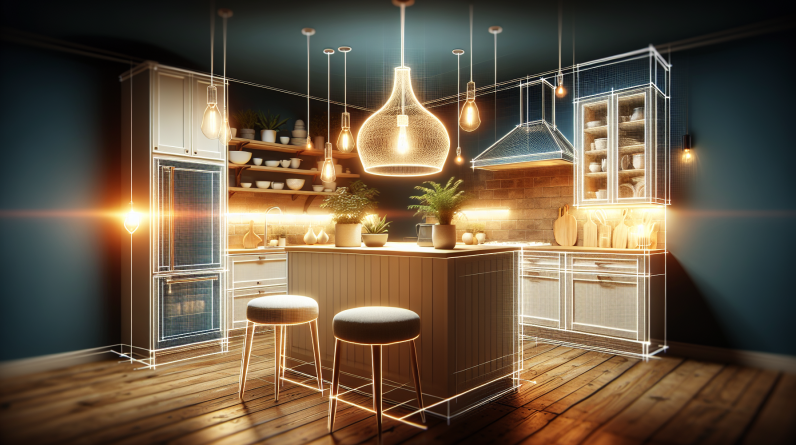Thinking about getting a water filter for your kitchen faucet? We’re here to help you make that decision with ease. In this article, we’ll discuss the benefits of having a water filter, how it can improve the quality and taste of your tap water, and factors to consider when choosing the right filter for your needs. Say goodbye to concerns about contaminants and impurities in your drinking water – let’s dive into the world of water filters and find out if it’s the right choice for you.
Benefits of Using a Water Filter
Using a water filter for your kitchen faucet comes with numerous benefits that can greatly improve the quality and safety of the water you consume.
Removes impurities
One of the primary benefits of using a water filter is its ability to remove impurities from your tap water. These impurities can include heavy metals, chlorine, bacteria, and parasites that may be present in the water supply. By filtering out these impurities, you can have peace of mind knowing that you are consuming cleaner and safer water.
Improves taste and odor
Another advantage of installing a water filter is the improved taste and odor of the water. Many people find that tap water can sometimes have an unpleasant taste or smell, often due to the presence of chemicals like chlorine. A water filter can effectively remove these substances, resulting in a fresher and more enjoyable drinking experience.
Reduces exposure to harmful substances
Using a water filter can also significantly reduce your exposure to harmful substances in the water. For example, some areas may have higher levels of lead or other contaminants in their water supply. By filtering out these substances, you can minimize the potential health risks associated with their consumption.
Types of Water Filters
When considering a water filter for your kitchen faucet, it’s important to be aware of the different types available and their respective features. Here are three common types of water filters to consider:
Activated Carbon Filters
Activated carbon filters are popular due to their ability to effectively remove impurities and improve the taste and odor of the water. These filters work by absorbing contaminants onto the surface of the carbon, effectively trapping them and preventing their presence in the filtered water.
Reverse Osmosis Filters
Reverse osmosis filters use a semi-permeable membrane to remove a wide range of contaminants from the water. This filtration process involves forcing water through the membrane, leaving behind unwanted substances. Reverse osmosis filters are known for their ability to provide high-quality, purified water.
Ceramic Filters
Ceramic filters are often used in conjunction with other filtration methods to provide an additional layer of purification. These filters consist of tiny pores that block larger particles and contaminants from passing through, resulting in cleaner and safer drinking water. Ceramic filters are especially effective in removing bacteria and parasites.

Factors to Consider
Before choosing a water filter for your kitchen faucet, it’s important to consider several factors to ensure you select the right option for your needs. Here are three key factors to take into account:
Water Quality
The quality of your tap water should be the first consideration when deciding on a water filter. If your water has high levels of contaminants or specific issues, such as a strong odor or taste, you may need a more advanced filtration system. Conducting a water quality test or consulting with a professional can help determine the appropriate filter for your specific needs.
Budget
Budget is another important factor to consider when purchasing a water filter. Different types of filters have varying costs, and it’s essential to find an option that fits within your budget. Remember to not only consider the initial cost of the filter but also the maintenance expenses in the long run, such as replacement cartridges.
Installation
Installation is a crucial factor to consider, especially if you prefer a DIY approach. Some filters require professional installation, while others can easily be installed by homeowners. Consider your level of expertise and the time you are willing to invest in the installation process when choosing a water filter.
Cost Analysis
Understanding the cost implications of using a water filter is essential when making your decision. Here are three aspects to consider when analyzing the costs:
Initial Cost
The initial cost of a water filter includes the purchase price of the filter itself and any additional accessories needed for installation. Keep in mind that higher-quality filters may require a larger upfront investment, but they often provide better performance and longer lifespans.
Maintenance Cost
Maintenance costs are an ongoing consideration when using a water filter. This includes the cost of replacement cartridges, which vary depending on the type and brand of filter. Additionally, some filters might require regular maintenance procedures, such as cleaning or disinfection, which may also incur additional costs.
Long-term Savings
Although there may be upfront and ongoing costs associated with using a water filter, it is important to consider the potential long-term savings. By filtering out impurities from your tap water, you may reduce the need to purchase expensive bottled water or other beverages. Additionally, using a water filter can prolong the lifespan of appliances like coffee makers and kettles by preventing the accumulation of mineral deposits.

Installation Process
Installing a water filter for your kitchen faucet can be done through different approaches, depending on your preferences and skill level. Here are two common installation methods:
DIY Installation
For those who prefer a hands-on approach, some water filters can easily be installed by homeowners. These filters typically come with detailed instructions and require basic tools for installation, such as adjustable wrenches or pipe cutters. DIY installation allows for flexibility and immediate access to filtered water once the installation is complete.
Professional Installation
If you are less confident in your plumbing skills or prefer a hassle-free installation process, professional installation is a viable option. Hiring a licensed plumber ensures that the water filter is properly integrated into your existing plumbing system, guaranteeing optimal performance and minimizing the risk of leaks or other installation issues.
Maintenance and Replacement
Regular maintenance and timely replacement of filter components are necessary to ensure the continued effectiveness of your water filter. Here are two important considerations for proper maintenance:
Filter Replacement Frequency
Each water filter has a recommended filter replacement frequency that ensures optimal performance. This frequency varies based on factors such as filter type, water quality, and usage. It is important to monitor your filter’s lifespan and replace cartridges according to the manufacturer’s guidelines to ensure consistently clean and filtered water.
Filter Lifespan
The lifespan of a water filter depends on its type and the quality of the water being filtered. Some filters may last several months or even a year before needing replacement, while others may require more frequent changes. Understanding the filter’s lifespan is crucial for maintaining its efficiency and ensuring the quality of the filtered water.
Maintenance Procedures
Regular maintenance procedures can help prolong the lifespan and performance of your water filter. These procedures may include cleaning or disinfecting the filter housing, checking for leaks or damage, and proper storage if the filter is not in use for an extended period. Following the manufacturer’s instructions on maintenance is essential to preserve the filter’s integrity.

Certifications and Standards
When choosing a water filter, it is important to consider certifications and standards that ensure the filter’s quality and reliability. Here are three certification programs to look for:
NSF Certification
The NSF (National Sanitation Foundation) certification ensures that water filters meet specific industry standards for performance and safety. A water filter with NSF certification provides assurance that it has been independently tested and evaluated by a reputable third party.
ANSI/NSF Standards
The ANSI/NSF (American National Standards Institute/National Sanitation Foundation) standards establish the criteria against which water filters are tested. By looking for filters that comply with these standards, you can be confident in their ability to effectively remove contaminants and provide clean water.
WQA Certification
The WQA (Water Quality Association) certification is another reputable certification program that evaluates the quality and performance of water filters. A filter with WQA certification demonstrates compliance with industry standards and ensures that it has undergone rigorous testing.
Environmental Impact
Using a water filter for your kitchen faucet can have a positive environmental impact, primarily by reducing plastic waste and water waste. Here are two environmental considerations:
Plastic Waste
By using a water filter, you can significantly decrease the amount of single-use plastic bottles that end up in landfills or oceans. Instead of relying on bottled water, which often comes in plastic packaging, you can enjoy clean and filtered water directly from your faucet, reducing your contribution to plastic waste.
Water Waste
Many households dispose of large quantities of water due to its poor taste or odor. By installing a water filter, you can improve the quality of your tap water and reduce the likelihood of wastage. This positive impact on water conservation can benefit both the environment and your monthly water bills.
Alternative Solutions
If a whole-house water filtration system is not feasible for your needs or budget, there are alternative solutions to consider. Here are two popular options:
Filtered Water Pitchers
Filtered water pitchers are an affordable and convenient option for smaller households or those on a tight budget. These pitchers contain a water filter that can remove impurities as water passes through, providing cleaner and better-tasting drinking water. While they may not have the same filtration capabilities as more advanced systems, they offer a simple and portable solution.
Under-sink Filters
Under-sink filters are installed directly beneath your kitchen sink, providing a dedicated filtration system without taking up counter space. These filters are often more advanced and can remove a wide range of contaminants. Although they require professional installation and a larger upfront investment, they offer convenience and high-quality filtration for the water you use in your kitchen.
Conclusion
When contemplating whether to get a water filter for your kitchen faucet, it is essential to consider your personal needs, budget, and the benefits outlined above. By removing impurities, improving taste and odor, and reducing exposure to harmful substances, a water filter can provide you and your family with cleaner and safer drinking water. Consider the types of filters available, installation options, maintenance requirements, and any certifications or standards to make an informed decision. With proper research and consideration, you can confidently choose a water filter that suits your requirements and enhances the quality of your tap water. Cheers to healthier hydration and a more sustainable lifestyle!


